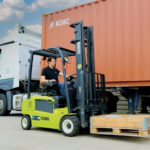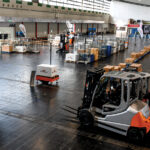Transnet must reconsider unconscionable tariff increase
Transnet must reconsider unconscionable tariff increase
To spur meaningful, transformative trade growth, Transnet should urgently reconsider its decision to increase tariffs by up to 24%, says CHRIS HATTINGH.
The decline of South Africa’s rail and port infrastructure has been well documented – it is unclear how the increase in tariffs would alleviate the myriad problems afflicting said infrastructure. These higher tariffs will need to be incorporated by importers and exporters, manufacturers, and businesses across industries that need to trade. Eventually these higher operation costs, induced by increased tariffs, will be passed onto consumers. This will be yet another assault on economic activity and growth in South Africa.
Onerous tariffs – along with other non-tariff trade barriers such as border inefficiencies, higher security and safety costs, and the cost of corruption – serve to both discourage the flow of goods and services across borders and increase operation costs for virtually all participants in the value- and supply-chains. When a government-imposed monopoly on transport infrastructure inhibits trade flows because of its own operational problems and lack of competence, there is little reason to think that giving this entity more income would resolve those problems.
CHAOS AT PORTS
In January 2022, the various operational inefficiencies at South Africa’s ports – in this instance, Cape Town Harbour – reared their ugly heads once more, with delays of nine days or more being experienced. Some of the issues included congestion and ageing, out-of-service infrastructure – problems that afflict the country’s other ports as well.
James Cunningham, a Western Cape-based businessman involved in moving machinery and various industrial equipment, indicated that “despite almost three years of expressed concern, nothing has actually been done to rectify the situation”. Given how vitally important the Cape Town port is for that province’s (and indeed South Africa’s) agricultural exports, can we really afford these kinds of delays? Again, one must also question whether Transnet’s tariff increases would fix any of the structural issues?
South Africa’s ports’ costs are already incredibly high; Transnet’s tariff hikes will only squeeze the sector further. In 2021, the Minerals Council indicated that port charges were higher than those in competitor states. The Council also pointed out that, at US$117 per 20-foot container, South Africa is currently positioned in the upper-middle cost quartile of the top 50 terminals worldwide. Globally, container prices have been creeping steadily upwards over the last two years; it remains highly probable that both the crunch and increased demand for containers will remain. But by imposing higher tariffs, Transnet will inadvertently be increasing the cost of containers moving through South African ports, to the detriment of business and consumers alike.
Turning to Durban harbour, investments worth R26 billion were announced in January 2022. There is every chance that these investments will be used well and efficiently; given South African state-owned entities’ woeful performance and increasingly destructive financial burdens over the last decade, however, is there any reason to believe that the Transnet Ports Authority will be allowed to operate free from political interference? When difficult decisions need to be made – decisions which may encroach on the territory of heretofore protected, vested interests – one must be concerned whether the optimal economic path will ultimately be taken.
CAN LOCALISATION MASTER PLANS SOLVE ISSUES?
Much focus in the South African trade space has been given to the formulation – and now implementation – of various Localisation Master Plans. These aim to “reindustrialise” the country and to spur and support the production of locally manufactured goods and products. However, it is not at all clear how any of the plans would address or resolve the myriad structural issues in trade, logistics, and infrastructure.
The time may have come for the Western Cape government to take over the management of Cape Town Harbour. While no arrangement will ever be perfect, at least placing the locus of control within the province, where people are more intimately knowledgeable and aware of local challenges, could bring about better performance. Such a first step would indicate that more decentralised governments are focused on what their business and citizen-constituents’ biggest problems and needs are, and that they are serious about responding to these – even if it will upset vested, bureaucratic interests.
Improved efficiencies and faster container turnaround times at ports, as well as continuing theft of railway infrastructure, stand out in particular. Government can promise to buy all the locally produced goods they can manage, but in the absence of actual improvements on the ground South Africa’s trade performance will decline. If this happens, we will not reap the benefits of the Africa Continental Free Trade Area. In the interim, there is scope for Transnet executives to take smaller pay packages, putting some of their salaries back into covering other costs at the utility. Indeed, perhaps there is no need to increase tariffs after all.
Published by
Chris Hattingh
focusmagsa




